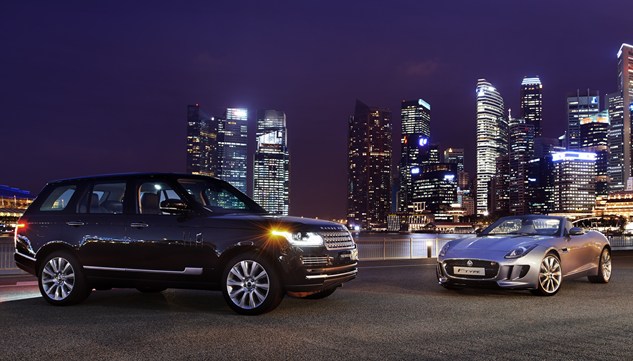Jaguar Land Rover, a subsidiary of the Indian car maker Tata Motors recently confirmed that their plan to invest $318 million to build a car factory in Brazil with the capacity to produce 24,000 car per year and will initially create more than 400 jobs in the area. In a recent statement they mentioned that the construction on the new site in Brazil will begin in the middle of next year and the production should be started from 2016. Jaguar Land Rover has already made an agreement with Brazilian authorities to start a manufacturing plant in Rio de Janeiro. It is not yet known which vehicles will be made at the factory, though models such as the Land Rover Freelander replacement are rolled to be among them.
Though this is going to be their first plant in Brazil, Jaguar Land Rover is doing business in the country for about two decades now, with about 35 dealers selling their cars there. Brazil is now being seen as a productive location for investing in automobile manufacturing units. As mentioned before, a number of companies have already evinced a strong for the nation. This is not only because of the lower costs but also due to the fact that Brazil holds the key to the whole South America continent.
The main reason behind producing cars in Brazil is to avoid high import tax. And also they won’t need to form partnership with any Brazilian car company, as it had to in China. At first the factory will concentrate only on the Brazilian car market, sooner or later they will consider export cars to Latin America, said the company’s most senior executive in the region, Flavio Padovan, to the journalists in a press conference.
In this issue, Dr Ralf Speth, chief executive of JLR, said: “Brazil and the surrounding regions are very important. Customers there have an increasing appetite for highly capable premium products.” “This new program will enable us to bring exciting new vehicles to them, with outstanding British design and engineering, creating a world-class Jaguar Land Rover facility incorporating leading premium manufacturing technologies.”
Certainly, the Jaguar Land Rover’s plan to build factory in Brazil came after their strong competitors BMW, Mercedes-Benz and Audi’s announcement of setting up plants in this region. Though, Audi had stopped producing cars in Brazil nearly 2006 but they just recently announced that they will start their production again.
It is clear that their plan to build factory here also reveal the fact that the Brazilian government increased the tariffs on imported cars by 30% last year but discharged automotive firms that had plants in Brazil to encourage inner investment in the country.
As well a rising quality market and a tax regime designed to encourage inward investment, there are some other factors which may have encouraged JLR to go for production in Brazil including the necessity to avoid exchange rate risks, reduce transport costs, and to source components locally.



